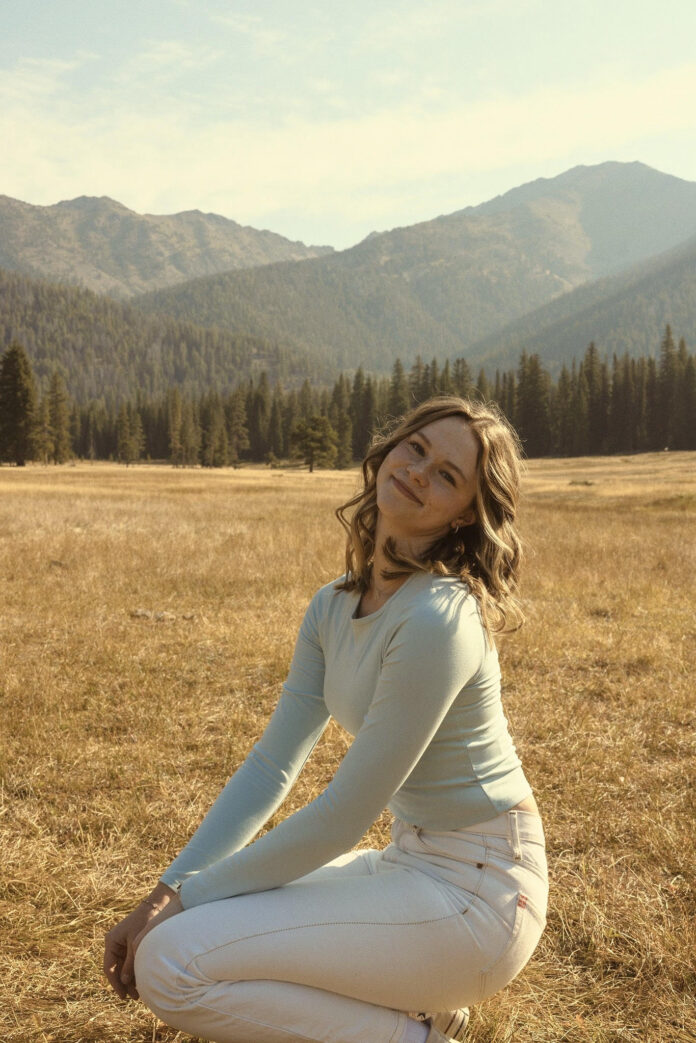Graduating Senior Explores The Many Ways To Lead
By Mark Dee
Entering her junior year at Wood River High School, Leila Brickley found herself a few credits ahead of the class. With room to maneuver, she paused to consider other ways to learn. The Hailey senior kept coming back to a shopworn idea, true in the ways that cliches so often are: Travel is the best education. So, she found a program, enrolled, and soon sat in a kitchen of a host family in Guatemala, living life in her second language.
After thirteen years in the Blaine County School District’s Dual Immersion program, on paper Brickley knew a lot about Latin America. Being there, she was amazed by how much it more of it there was to discover.
“Guatemala is a pretty small country, and there are, like, 20 or 30 countries in Latin America? This is just a little small slice of it. But every town we went to was so different and unique. Every city, every group of people we talked to, like, it was almost overwhelming, just going to all these places and realizing just how much more is always out there and how many more amazing places there are to explore.”
As her groups de facto translator, she found out about herself in her first extended trip away from the Wood River Valley.
“I learned that I’m more capable in a crisis or in uncertainty than I thought I was,” she said. “I thought I’d be so nervous, if any little things went wrong, and that I’d be looking to other people to solve [problems]. But I think I took on more leadership roles and more proactive roles, especially being able to speak Spanish.”
In the years ahead, Brickley will explore those aspects of herself—in the wider world, and across her own country—as one of 27 students new in the Robertson Scholars Leadership Program at Duke University in Durham, North Carolina. The scholarship covers all her expenses and funds summer travel and study abroad. Her first trip will be on a project in the rural American South, a place she knows about as well as she did Guatemala before her trimester there. She can study whatever she wants—for Leila, likely something in humanities; meanwhile, the program offers tutelage and support for scholars hoping to understand the many ways they might change the world.
When she met her cohort in April, she felt at home.
“They talk about this idea of purposeful leadership, and understanding what different kinds of leadership look like—how to create change, how to listen to other people and try to understand before diving in. That there’s this community that feels very purposeful and very focused around these goals was incredible to me.”
When she got home and described it to her father, Jason, he saw the fit right away.
“It just sounds like it’s made for you,” Leila recalls him saying.
That’s because, for all her individual skills, Brickley has always been her best with like-minded people by her side. She’s a writer, a dancer, and a violinist. But her vision of creativity isn’t of an isolated artist executing a singular vision. It’s a Footlight recital, dancing with the same girls she has for years, each finding something in themselves to tell a story together. It’s workshopping a poem, like she did last year at the Iowa Writer’s Workshop, drawing on different perspectives to get the words just right. It’s playing in the Wood River Orchestra. “You can’t really pick out your own voice from the crowd, or the sound of your own instrument,” she said of performances. “You almost aren’t even sure how it comes together, but when you’re on stage, it’s the most incredible, focused, beautiful sound that you get to create for people. It’s not very showy, but it’s just gorgeous.”
Leadership can be like that, too. She’s seen it in her teachers, who have set examples, sometimes “in very quiet ways.”
“It’s not always being a person in the front of the classroom,” she said. “It can be the person pushing people forward and encouraging from the back.”
Eventually, Brickley may consider law school. For now, though, she’s keeping an open mind—which, after all, is what leadership, like creativity, is all about.
“This idea that leadership is a flexible concept—that it can look different and manifest itself in different ways—is so similar to the way I approach the arts. Because no one person creates something the same way as someone else, and embracing that is just so important for creating anything.”

